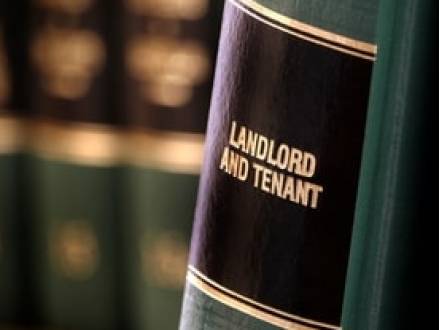Contact Our Firm
The use of the Internet or this form for communication with the firm or any individual member of the firm does not establish an attorney-client relationship. Confidential or time-sensitive information should not be sent through this form.
I have read and understand the Disclaimer and Privacy Policy.

Do I Need a Lawyer to Evict My Tenant?
 Evicting a tenant is often a difficult and stressful experience. As a landlord, you may feel conflicted, especially if your tenant is facing financial problems or personal struggles. However, when a tenant is not following the terms of their lease, eviction may become necessary.
Evicting a tenant is often a difficult and stressful experience. As a landlord, you may feel conflicted, especially if your tenant is facing financial problems or personal struggles. However, when a tenant is not following the terms of their lease, eviction may become necessary.
Eviction involves following very specific steps. Even minor mistakes can lead to major delays or even case dismissals, forcing landlords—even when they are in the right—to start the eviction process all over again. Knowing your rights and responsibilities is crucial to handling the situation correctly, and a Florida landlord attorney can help you do just that.
When Can Tenants Be Evicted in Florida?
In Florida, landlords may need to evict a tenant for several reasons, including:
- Failure to pay rent: When a tenant does not pay rent on time or at all
- Violating the lease terms: For example, having unauthorized pets or additional occupants
- Causing property damage: Significant damage beyond normal wear and tear, such as broken windows, holes in walls, or deliberate destruction of appliances
- Engaging in illegal activities: Using the property for unlawful purposes, like selling drugs or operating an illegal business
- Creating a nuisance: Disturbing other residents with excessive noise, such as loud parties, or engaging in behavior that leads to frequent police visits
- Refusing to vacate: Staying on the property after the lease term has ended without renewing the lease
Each of these situations requires the landlord to follow specific legal steps to ensure the eviction is valid.
What Does a Landlord Need to Do to Evict a Tenant in Florida?
Evicting a tenant in Florida involves following a strict legal process. First, the landlord must give the tenant a written notice saying why the tenant is being evicted and how much time the tenant has to resolve the issue or vacate the property.
For example, if the tenant has failed to pay rent, the landlord typically gives a three-day notice to pay rent or quit. If the tenant is creating a nuisance, the landlord can give a notice of non-compliance that gives the tenant seven days to comply.
If the tenant does not pay, comply with a notice, or move out, the next step is to file an eviction lawsuit, known as an unlawful detainer action, with the court. A landlord should never take measures to remove the tenant on their own, such as changing the locks or removing the tenant’s belongings.
If the tenant contests the landlord’s claims, a court will schedule a hearing. If the court rules in favor of the landlord, a writ of possession will be issued, allowing the tenant to be removed from the property. The landlord still cannot remove the tenant himself; the sheriff must do this.
Why Is It Important to Have an Attorney for an Eviction?
If any step in the eviction process is done incorrectly, the eviction could be delayed or dismissed, forcing the landlord to start over. For example, if the eviction notice is not worded correctly or served, the tenant could challenge it in court. Additionally, the case could be thrown out if the landlord tries to evict the tenant for reasons not supported by Florida law — such as retaliation for reporting code violations.
An attorney ensures that all documents are correctly prepared and that the process complies with Florida law. Additionally, an attorney can represent the landlord in court if the tenant disputes the eviction or files a counterclaim. Without a lawyer, a landlord risks making mistakes that could cost time and money and possibly even result in the tenant remaining on the property even longer.
Contact Our Fort Lauderdale, FL Eviction Lawyer for Help
If you are facing the difficult task of evicting a tenant, it is essential to have the right legal support. The Broward County, FL landlord representation attorney at The Elliot Legal Group, P.A. can guide you through the eviction process while handling everything correctly and efficiently. The Elliot Legal Group, P.A. offers initial consultations to help you understand your options and will work with you to protect your property and your rights.
Do not risk delays or complications by trying to handle an eviction on your own. Contact Attorney Elliot at 754-332-2101 today to speak with a knowledgeable attorney who will support you every step of the way.















